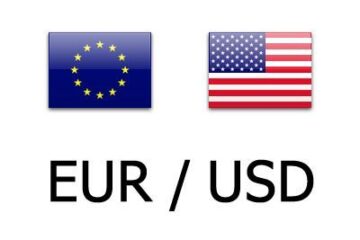Americans have spent the past few months agonizing over the price of eggs. Yes, for a variety of reasons, including bird flu, the price of eggs has doubled.
That being said, you can find a dozen eggs for under $5 in most grocery stores. If you join a warehouse club like Costco or Sam’s Club, you might even be able to get a better deal.
It’s easy to understand why people do not like seeing the price of everyday staples go up. In reality, however, most families probably eat no more than a couple of dozen eggs a week.
If they eat the full two dozen, let’s say that their expenses increase by basically five dollars per week. That’s $260 a year.
Admittedly, eggs are not the only staple that has increased in price, which is causing many Americans to feel the pinch of inflation and higher prices.
Spending more at the grocery store each week is death by 1,000 paper cuts, which is a painful way to die.
Related: Walmart, Kohl’s raise alarm bells about a growing threat
But if you suffer one giant cut, the reality is you’re just as dead. Americans have some options to buy food produced in this country that won’t be impacted by tariffs.
Certain staples like coffee, well, almost certainly increase, but even there, there are options, at least if all you want is a caffeine fix. When it comes to electronics, there are no options.
You can’t get an iPhone, a laptop, a television, or most appliances that come from US manufacturers. And admittedly, unlike eggs, you can put off upgrading your phone or buying a new television.
💵💰Don’t miss the move: Subscribe to TheStreet’s free daily newsletter 💰💵
At some point, however, whether it’s your washing machine, your refrigerator, your smart phone, or whatever type of computer you might use, something will break. When that happens, you are going to face a reality that’s going to be very painful.
That’s something Best Buy’s CEO is warning consumers and investors about.
Best Buy expects prices to increase
Image source: Shutterstock
Best Buy buys from China and Mexico
Best Buy (BBY) CEO Corie Sue Barry did not pull any punches when it came to discussing tariffs during the electronics retailer’s fourth-quarter earnings call.
“Against this backdrop, I need to pause a moment to address the topic of tariffs. International trade is critically important to our business and industry. The consumer electronics supply chain is highly global, technical, and complex. China and Mexico remain the No. 1 and No. 2 sources for products we sell, respectively,” she shared.
The CEO also made it clear that tariffs would be passed on to the retailer, which would then have to pass them onto consumers.
“While Best Buy only directly imports 2% to 3% of our overall assortment, we expect our vendors across our entire assortment will pass along some level of tariff costs to retailers, making price increases for American consumers highly likely,” she shared.
More Retail:
Walmart CEO sounds alarm on a big problem for customersTarget makes a change that might scare Walmart, CostcoTop investor takes firm stance on troubled retail brand
Barry admitted that she does not have all the answers.
“This is because it is a highly dynamic situation, with uncertainty about the duration, timing, amount, and countries involved, in addition to the potential action of others in the industry, as well as the potential reaction of American consumers,” she said.
Best Buy, American consumers face higher prices
Best Buy does have flexibility on some products and Barry wanted to make it clear that it will be actively looking to offset the increased costs as much as possible.
“I want to stress that our deeply tenured and talented teams are experienced at operating in volatile conditions, and this is also a situation where our partnerships with vendors are extremely valuable. We intend to execute the strategic plan we set for this year while navigating the tariff environment,” she added.
Related: Billionaire Bill Ackman delivers frank 3-word message on tariff war
CFO Matthew Bilunas made it clear, or at least as clear as someone speaking in financial terms could, that consumers will pay more.
“We’re assuming in this estimation that a material portion of the costs are passed on to us by the vendors and then either, that’s either directly broken out or blended in with the higher COGS (cost of goods sold) or through some level of promotional positioning. Of course, you know, we prefer not to raise prices. But because of the higher COGS, we need to enact some price increases, and that is going to vary based on product category, SKUs, competitive environment, and other factors,” he shared.


